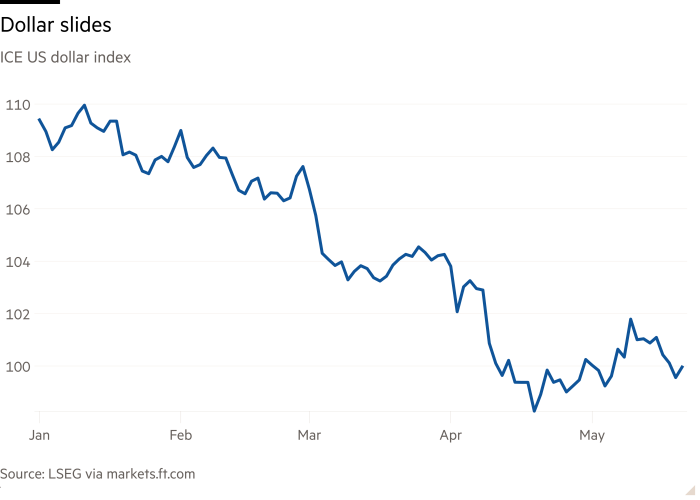Fitch downgrades China’s sovereign debt over spending and tariffs

Stay informed with free updates
Simply sign up to the Chinese economy myFT Digest — delivered directly to your inbox.
Rating agency Fitch has downgraded China’s sovereign debt over concerns about weaker public finances and the impact of higher tariffs on exports, a move that prompted accusations of bias from Beijing.
In a statement on Thursday, Fitch said its cut to China’s long-term foreign currency rating from A+ to A was based on forecasts made before US President Donald Trump’s announcement on Wednesday of additional “reciprocal” tariffs of 34 per cent on Chinese goods.
Fitch said its move reflected expectations that China would sharply increase spending in order to support economic growth and counter deflationary pressures amid rising tariffs that would weigh on external demand.
“This support, along with a structural erosion in the revenue base, will likely keep fiscal deficits high,” the agency said, adding that it expected the ratio of government debt to GDP to “continue its sharp upward trend over the next few years”.
China’s finance ministry denounced what it said was a “biased” downgrade.
“China’s economy has a stable foundation, many advantages, strong resilience and great potential,” the ministry said in a statement, adding that “long-term favourable” conditions and the “general trend of high-quality economic development” had not changed.
China is not a heavy issuer of foreign currency debt, with most of its bonds priced in renminbi. A $2bn issuance in Saudi Arabia in November last year made waves due to huge investor demand and the fact that Beijing was able to borrow almost as cheaply as the US in dollars.
On Wednesday, the finance ministry raised Rmb6bn ($823mn) through the issue of its first green sovereign bonds in London, an offer that was almost seven times oversubscribed, according to a statement from Bank of China, one of its sponsors.
Fitch had cut its outlook on China’s credit rating to negative from stable in April last year, citing growing debt concerns as Beijing tries to shift to new growth models.
The agency said on Thursday that its outlook was now stable, despite uncertainty about the impact of Trump’s new tariffs, because there was “headroom at the current rating to accommodate the likely implications for economic growth and fiscal metrics”.
Beijing believes it needs to issue more government debt as part of efforts to boost the Chinese economy.
“China will continue to implement a more proactive fiscal policy and a moderately loose monetary policy,” the finance ministry said.
Moody’s Investors Service cut its China credit outlook to negative in December 2023, citing growing risks of persistently lower midterm economic growth and the overhang from a crisis in the property sector.
Allan von Mehren, China economist at Danske Bank, said China’s bond market was dominated by domestic players that were unlikely to be affected by the Fitch rating cut.
“China has a very high level of savings that need a home and much of it goes into bonds via the banks and pension funds,” he said. “The People’s Bank of China is also set to ease policy further and increase liquidity by reducing reserve requirement ratios, so there will be ample money to buy the bonds to fund the debt.”






